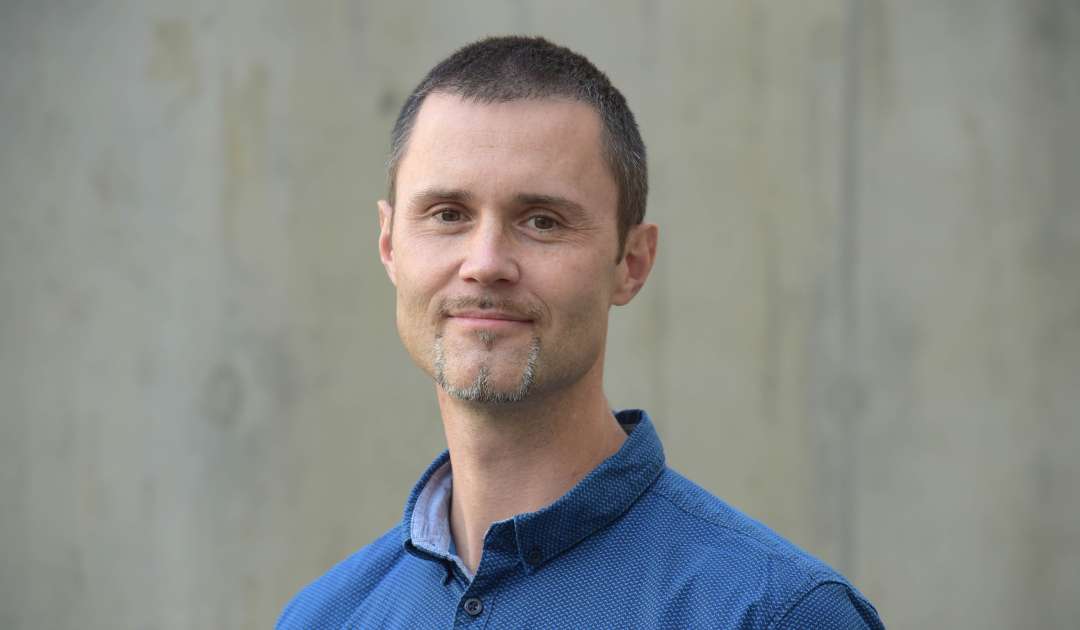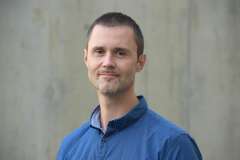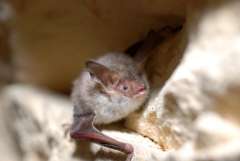Do naszych czytelników: Żałujemy, że ta treść nie jest dostępna w języku polskim.
Learning from bats: ERC Synergy Grant 2023 for Senckenberg genomicist Prof. Michael Hiller
Diseases due to infections or ageing pose major challenges to humanity worldwide, be it from a medical, health policy, economic or emotional perspective. Interdisciplinary and innovative research approaches are needed to find solutions. In a joint research project, four scientists, including Prof. Dr. Michael Hiller from the Senckenberg Society for Nature Research, want to show that nature can serve as a helpful model. Therefore, they are looking at the longevity and disease resistance of bats. The international team received an ERC Synergy Grant of around 12 million euros from the European Research Council for the „BATPROTECT” project, which will run for six years.
A long life without health impairments or the containment of infectious diseases are goals for which research has not yet found any overarching solutions despite all the progress made. One group of animals, however, seems to have a solution for both sets of issues: bats. These flying mammals exhibit exceptional longevity with hardly any signs of age-related diseases. They also benefit from a uniquely adapted immune system: although they often carry viruses that can even be lethal to other organisms, infections in bats proceed without symptoms.
Four scientists covering different disciplines – biology, genomics, immunology, and gerontology – now want to shed light on these special characteristics of bats together with their teams. The overarching goal of their project „BATPROTECT” is to achieve a breakthrough in understanding the molecular basis of the extended life expectancy and disease resistance of bats to find new ways to improve human health and disease progression in the future.
„We will sequence the genome of 150 bat species in the highest quality. This will provide a basis for further investigations using new immunological, bioinformatic, cellular and molecular tools and methods,” reports Michael Hiller, Professor of Comparative Genomics at Senckenberg and Goethe University, and spokesperson of the Hessian LOEWE Centre for Translational Biodiversity Genomics (LOEWE-TBG). „We want to characterise ageing processes in bats and understand how they differ between long-lived and short-lived bat species and to other mammals.”
The research team aims to help pave the way for future therapeutics. „Receiving one of the coveted ERC Synergy Grants gives us the opportunity to achieve a fundamental understanding of long life expectancy and disease resistance. This is only possible through interdisciplinary research. I am very much looking forward to intensifying research on bats, which my team and I have already focused on for several years, and to incorporating new perspectives,” says Hiller, looking to the future.
The project „BATPROTECT. Learning from Bats: New Strategies to Extend Healthspan and Improve Disease Resistance” involves in addition to Hiller the bat biology expert and ageing researcher Prof. Emma Teeling from University College Dublin in Ireland, the immunologist and virus expert Prof. Linfa Wang from Duke-NUS Medical School in Singapore, and the ageing researcher Prof. Björn Schumacher from the Institute for Genome Stability in Ageing and Disease at the CECAD Research Centre in Cologne.
ERC research funding
The European Research Council (ERC) is an institution established by the European Commission to fund basic and excellent research. The ERC is funded through the EU Framework Programme for Research and Innovation „Horizon Europe”.
The aim of ERC funding is to support the best and most creative scientists to discover and explore new approaches in all disciplines. In particular, interdisciplinary approaches that transcend the boundaries of their discipline are welcomed as promising for innovation.
ERC Synergy Grants
ERC Synergy Grants are aimed at groups of two to four scientists who are planning to jointly implement a new research project. Funding is provided for projects that lead to discoveries at interfaces between established disciplines and to substantial advances at the frontiers of knowledge. A prerequisite for a Synergy Grant is that the project is only possible and promising through the collaboration of the researchers. In addition, excellent research experience must be demonstrated by the individual team members.
Further information:
https://erc.europa.eu/apply-grant/synergy-grant


